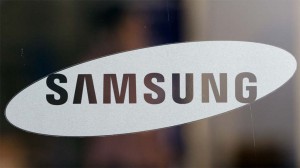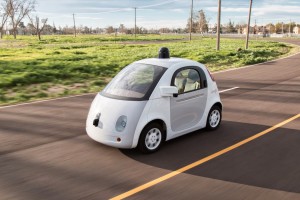One of the leaders in consumer electronics like smartphones and televisions, Samsung Electronics now wants to enter the automotive market.
The South Korean firm says it is particularly interested in joining the race to develop autonomous vehicles, a technology that has already drawn in such tech giants as Google and, apparently, Samsung’s biggest rival in the smartphone world, Apple.
The first semi-autonomous vehicles are already on the road and fully self-driving vehicles could begin rolling out by 2020. But while traditional automakers such as General Motors, Toyota and Mercedes-Benz are investing heavily in the technology, a new study suggests that high-tech firms like Google and Apple could wind up in the lead because of their fundamental software expertise.
The world’s largest maker of computer chips and smartphones is apparently looking for new outlets as it watches its phone business weaken. Among other things, the Korean firm said in a statement it was looking to become a player in some of the fastest-growing high-tech segments in the automotive industry, such as in-car entertainment, satellite navigation and autonomous vehicles.
Nearly 20 million autonomous vehicles are expected to be on the road by 2020, according to a study released this month by Juniper Research. Self-driving cars are expected to generate $10s of billions of dollars a year in business for component suppliers by mid-century, according to a variety of forecasts from research firms such as the Boston Consulting Group.
(For more on the Juniper study, Click Here.)
“Samsung just can’t leave this huge market untapped,” wrote Greg Roh, an analyst at HMC Investment Securities Co. in Seoul.
It’s not the first time Samsung has been involved in the auto industry. The company formed an automotive division in 1994 and started producing vehicles in 1998 – just as the Korean economy collapsed. It nearly destroyed the country’s auto industry, Kia forced to sell out to rival Hyundai, while Japanese maker Nissan purchased a controlling, 70% stake in Samsung.
And, as far back as 2013, rumors began circulating that Samsung would enter the auto market, possibly as part of a partnership with Google. In this case, however, it appeared to be the Silicon Valley firm partnering with the Samsung carmaking operation. While the Juniper Research study sees Google as the leader in the development of self-driving technology, the tech firm has said it does not plan to build cars of its own, prompting some speculation it might turn to the Samsung factory.
(Apple has yet to formally confirm its own entry into the nascent autonomous vehicle market, though it is hiring numerous automotive veterans for what is reportedly known internally as Project Titan.)
(NHTSA puts focus on new tech features as it toughens crash standards. Click Here for the story.)
Though autonomous vehicle technology clearly presents major growth opportunities for Samsung, it’s not the only promising automotive segment. The Korean company has already formed an alliance with Audi to provide chips for various onboard functions, including infotainment and driver assistance systems.
Samsung has a lot of catching up to do, however, with Korean rival LG which is working with automakers including General Motors. During the most recent quarter alone LG reported more than $400 million in automotive component revenue.
All told, research firm Gartner Inc. estimates the automotive semiconductor market will grow 5%, to near $33 billion next year.
(Some hot new high-tech safety systems don’t always work as promised. Click Here for the story.)



I hope Samsung’s cars work better than their phones.